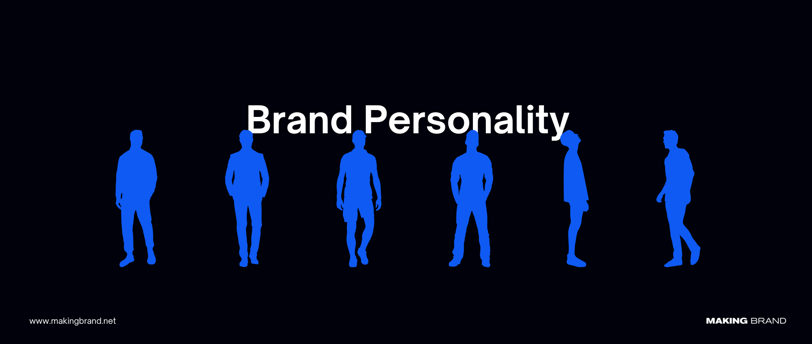What Is Brand Personality?
3 min read


Imagine meeting two people at a party. One is formal, articulate, and serious, while the other is laid-back, funny, and spontaneous. Both leave an impression, but the way you connect with them depends on your preferences and shared interests. Now, think of your brand as a person at that same party. How does it behave? How does it make people feel? This is the essence of brand personality.
Brand personality is the set of human traits and characteristics attributed to a brand. It’s what makes a brand relatable, memorable, and distinct in a sea of competitors. Just as people gravitate toward those whose personalities resonate with them, customers are drawn to brands they feel a connection with.
Why Does Brand Personality Matter?
At its core, brand personality helps create an emotional bond with your audience. People don’t just buy products or services; they buy experiences and identities. A well-defined brand personality makes your business more approachable and easier to remember.
Take Coca-Cola, for example. Its brand personality exudes happiness, optimism, and togetherness. Every advertisement, social media post, and product design reinforces these traits, making it a brand people associate with joy and shared moments.
On the flip side, consider Apple. Its personality is sleek, innovative, and forward-thinking, appealing to those who value creativity and cutting-edge technology.
Your brand personality serves as a compass, guiding everything from your tone of voice and visual design to the way you interact with customers.
The Building Blocks of Brand Personality
To truly understand brand personality, think of it as a blend of five key dimensions, as outlined by psychologist Jennifer Aaker’s Brand Personality Framework:
Sincerity – Honest, wholesome, and down-to-earth.
Excitement – Spirited, imaginative, and daring.
Competence – Reliable, intelligent, and successful.
Sophistication – Elegant, refined, and prestigious.
Ruggedness – Outdoorsy, tough, and adventurous.
Most brands lean into one or two of these dimensions to define their unique personality. For instance, Patagonia aligns with ruggedness, while Tiffany & Co. epitomizes sophistication.
How to Define Your Brand Personality
Defining your brand personality starts with introspection. Ask yourself:
What values does my brand stand for?
How do I want my audience to perceive my brand?
If my brand were a person, how would it behave, talk, and dress?
Let’s break it down further:
Understand Your Audience
Your brand personality should resonate with your target audience. A tech startup targeting Gen Z might adopt a playful, innovative personality, while a financial consultancy for corporate clients might lean toward competence and professionalism.Reflect on Your Mission and Values
Your brand’s purpose and values should shape its personality. A brand committed to sustainability might adopt a sincere and caring personality, while a brand focused on luxury might prioritize sophistication.Craft Your Tone of Voice
Your tone of voice is how your brand “speaks” to its audience. Is it casual and friendly, or formal and authoritative? For example, Nike’s tone is motivational and empowering, while Slack’s is approachable and witty.Align Visual Elements
Your logo, color palette, typography, and imagery should all reinforce your brand personality. A brand with a fun, youthful personality might use bright colors and playful fonts, while a brand with a sophisticated personality might opt for minimalist designs and muted tones.
Evolving Your Brand Personality
Just like people, brands can evolve over time. As markets shift and customer preferences change, your brand personality may need to adapt. However, this doesn’t mean losing your essence—it’s about staying relevant while staying true to your core values.
Take McDonald’s as an example. Once seen as a fast-food chain for families, it has evolved to appeal to millennials and health-conscious consumers by introducing modern designs, healthier menu options, and a more refined image, all while retaining its approachable and friendly personality.
Common Pitfalls to Avoid
While building your brand personality, avoid these common mistakes:
Being inconsistent: If your messaging and visuals don’t align, your audience will be confused. Consistency builds trust.
Trying to please everyone: A generic personality appeals to no one. Be bold in defining traits that resonate with your niche.
Ignoring feedback: Listen to how your audience perceives your brand. Their insights can help refine your personality.
In Conclusion
Brand personality is the human side of your business. It’s what makes your brand relatable, memorable, and capable of forging emotional connections. Whether you’re a tech startup aiming to disrupt the industry or a boutique bakery focused on community charm, your brand personality should reflect your values and resonate with your audience.
Remember, a strong brand personality isn’t just about standing out—it’s about standing for something. So, take the time to define your brand’s essence, and let it shine through every interaction, design, and message.
Your brand is already at the party. Now, how will it leave a lasting impression?
